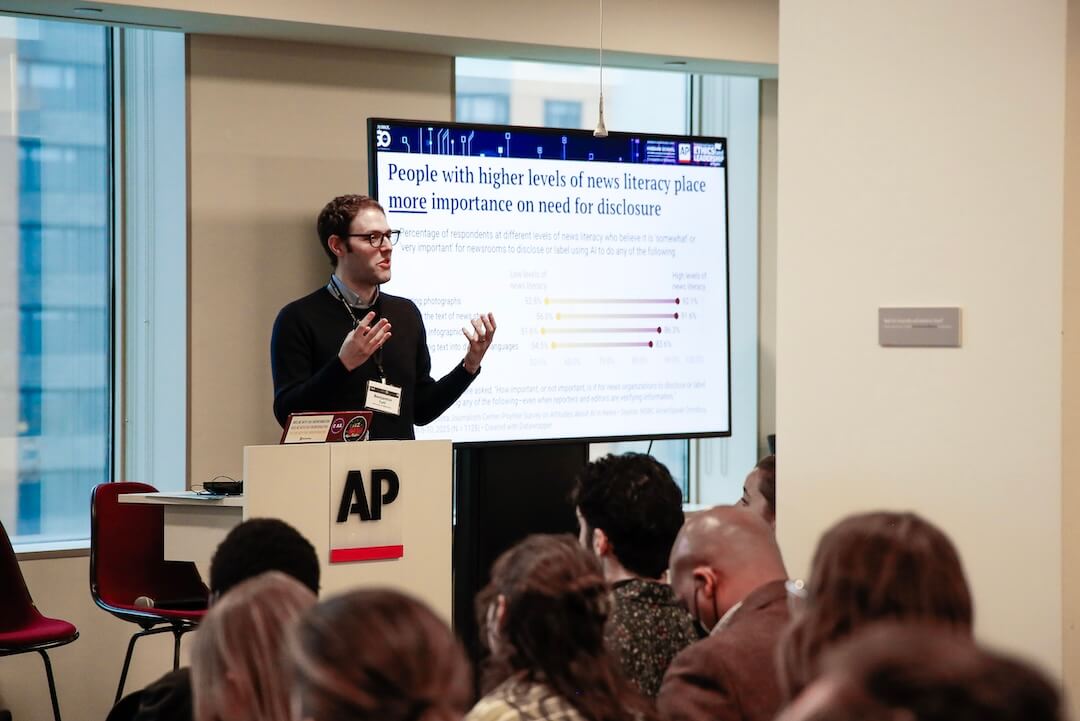This story originally appeared on the PunditFact website. Poynter.org is republishing with permission.
 Back in May, anyone who tuned in to almost any news show was guaranteed to hear about administrative delays that caused the deaths of 40 veterans at a VA hospital in Phoenix. Sometimes, the charge was softened a bit and news anchors talked about how the delays "might have" led to the deaths, but the general message was clear: Mismanagement, and even criminal deceit, had cut short the lives of people who had served their country.
Back in May, anyone who tuned in to almost any news show was guaranteed to hear about administrative delays that caused the deaths of 40 veterans at a VA hospital in Phoenix. Sometimes, the charge was softened a bit and news anchors talked about how the delays "might have" led to the deaths, but the general message was clear: Mismanagement, and even criminal deceit, had cut short the lives of people who had served their country.
On Tuesday, the Office of Inspector General at the Veterans Affairs Department issued its final report on the matter. While it confirmed a manipulation of scheduling records that it called unethical and in some cases criminal, it refuted the allegation that drove the headlines in May.
"We were unable to assert that the absence of timely quality care caused the deaths of these veterans," the investigators wrote.
TV news responded with barely a whisper.

CNN reported that veterans were dying due to delays at VA hospitals. But an inspector general’s report released this week found that allegation unsubstantiated.
The national programs from Fox, MSNBC and ABC didn’t report it at all (although many ABC affiliates did mention it in their local newscasts.) CBS, NBC and PBS mentioned it in passing, largely in the context of President Barack Obama speaking at a national meeting of veterans earlier in the day. Only CNN spent any appreciable time relaying the inspector general’s findings. CNN consistently gave this story more attention than any other outlet. CNN had conducted an investigation that spurred lawmakers to draw attention to the troubles at the VA hospital system in the first place.
The contrast from three months ago is striking, a review of transcripts from the major news networks shows. The VA story emerged with little fanfare in mid-April but grew rapidly. In May, according to the news database on Nexis, the stories that include the deaths of 40 veterans appeared on the networks 162 times. That’s a bit more than five times a day.
It’s tricky to compare Tuesday’s coverage of the inspector general’s report to the build-up, which took place over weeks. But we chose May 15, the day that former Veterans Affairs secretary Eric Shinseki testified before the Senate Veterans Affairs Committee, as a baseline for comparison.
May 15 was a key point in the discussion, though not as prominent as the day Shinseki resigned, May 30.
On May 15, the 40 VA deaths were mentioned in 18 different television reports. We broke it down versus the coverage of the inspector general’s report Tuesday.
| Network | Stories on May 15, 2014 | Stories on Aug. 26 |
| CNN | 8 | 2 |
| CBS | 2 | 1 |
| NBC | 1 | 1 |
| Fox | 3 | 0 |
| ABC | 2 | 0 |
| MSNBC | 1 | 0 |
| PBS | 1 | 1 |
| Total | 18 | 5 |
Why did networks barely report this update in an ongoing prominent story?
Frank Baumgartner, a political scientist at the University of North Carolina at Chapel Hill who co-authored a study of how much time the media spends on public issues, said networks often pick a "hot" topic to follow, until the next topic comes along.
Baumgartner calls it "churning."
"One reason why the ‘no bad news’ angle about the VA is not news is simply that the VA is no longer the focus of other reporters," Baumgartner said.
Much has happened since the VA health system story broke. Shinseki is gone, the VA endorsed all of the 24 recommendations that the inspector general proposed, and in a rare act of bipartisanship. the White House and Congress moved quickly to pass a $16 billion overhaul of the troubled agency. That would also tend to make news organizations treat the inspector general’s report as an afterthought, even if it did fundamentally undercut the allegations that drove the May headlines.
The loser in all of this, Baumgartner says, is the public. The VA bureaucrats served veterans badly but not as horrendously as the first stories originally suggested. The full picture has received little play.
"This is strongly related to the public perception that government is worse than it actually is," Baumgartner said.
About this article:
Sources:
Office of Inspector General – Department of Veterans Affairs, Review of Alleged Patient Deaths, Patient Wait Times, and Scheduling Practices at the Phoenix VA Health Care System, Aug. 26, 2014
Search of Nexis transcripts
Internet Archive, TV News Archive
Google Trends: VA hospital
Email interview, Frank Baumgartner, professor, political science, University of North Carolina at Chapel Hill, Aug. 27, 2014
Researchers: Jon Greenberg








Comments